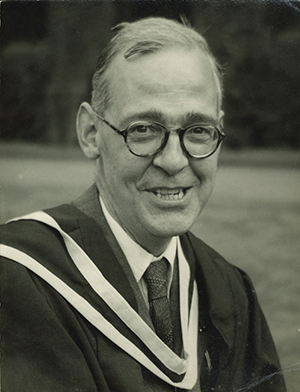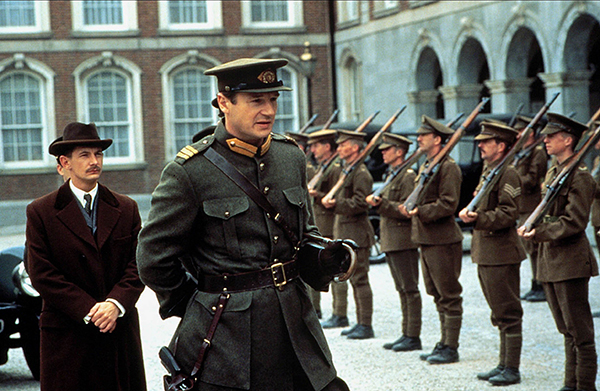An ‘Independence Day’ for Ireland?
Published in Issue 3 (May/June 2018), Platform, Volume 26By Dennis Kennedy
In this crowded decade of centenaries, are there any plans for an Independence Day? I mean a celebration of 100 years of a self-governing Irish state—the real thing, not the mythical Republic of 1916. How about 16 January, the day in 1922 when His Majesty’s lord lieutenant formally handed over Dublin Castle to Michael Collins and the Provisional Government was installed? The surrender of the Castle was symbolic of the end of eight centuries of British rule, and celebrating that in the Castle might also indicate a welcome lessening of the obsession with the GPO and 1916.
The same day, for most practical purposes, also marked the passing, at the age of 122, of that venerable institution the United Kingdom of Great Britain and Ireland, even though it lingered on in the person of the governor-general, the right of appeal to the privy council and not least in the person and title of the monarch. King George VI’s coronation oath on 12 May 1937 still contained a solemn promise ‘to govern the people of Ireland’ along with those of Great Britain and a large part of the rest of the world.

Above: J.C. Beckett c. 1959—‘One cannot understand the Ireland of today unless one grasps the concept of the United Kingdom of Great Britain and Ireland’. (Dennis Kennedy)
‘… by 1830 Ireland was, in fact, in the middle of a revolution—political, economic and social—which, so far from being suppressed, was being organised and carried through by the British government. By a whole series of enactments, beginning with the admission of Roman Catholics to Parliament in 1829, and passing on through the reform of the electoral system, the disestablishment and disendowment of the church (Church of Ireland), and the reform of local government, to the final destruction of landlordism, there was brought about a complete change in the balance of power in Ireland … It is no exaggeration to call this change a revolution brought about by constitutional means, even if government action was sometimes stimulated by violence.’
The Irish Free State settled down to be, in Beckett’s words, ‘a genuine and healthy democracy … In the making of the Free State, the hand was the hand of Collins, but the voice was the voice of O’Connell. It was due to the deep-seated influence of O’Connell that parliamentary democracy survived in the Twenty-Six Counties.’
None of this should be taken to infer that British rule was invariably benign or devoid of mistakes. The increasingly popular demand for Home Rule was stubbornly resisted for most of the nineteenth century. Many will say that 1916 made all of this irrelevant: all was changed, changed utterly. But the gist of Beckett’s argument is that the revolution of 1916–23 succeeded only in the constitutional sense. It achieved a degree of independence not greatly different from that theoretically granted in the Government of Ireland Act of 1912, and that for only part of the island. It did not result in a revolutionary republic. De Valera’s dictum that the majority has no right to do wrong—essentially the ideology-over-democracy spirit of 1916—was put to its crucial test by the Civil War and was defeated.
Today’s Ireland owes more to the United Kingdom of Great Britain and Ireland than it does to the dreams and aspirations of 1916. From that Union it has inherited almost the entire fabric of Irish society—in education, local government and much else—and even the face of Ireland, seen in the public buildings of Dublin and other cities and towns, was shaped in that period.
One change was fundamental to the shaping of modern Ireland: under the Union English became the language of the Irish people. In 1800 almost half the population were Irish-speaking; by 1922 the official returns showed that this had declined to about 18%. In the latest (2016) census only 4% claimed to speak Irish on a daily basis.
To Patrick Pearse language was the vital badge of national identity. The Republic he proclaimed was to be a Gaelic-speaking one. After almost a century of the Irish state decreeing that Irish is its language and investing money and effort in encouraging, bribing, bullying and even forcing the people of Ireland to speak Irish, they have resolutely refused to do so. So much for Enda Kenny’s claim that 1916 was the defining act in the formation of today’s Ireland. Internationally, Ireland today is probably best known for its poets, dramatists and novelists, all writing in English.

Above: Michael Collins (Liam Neeson) takes control of Dublin Castle from the British on the day the Provisional Government was installed, 16 January 1922—a possible ‘Independence Day’? (Alamy)
Irish nationalism will respond that English was imposed by the colonial oppressor. Daniel O’Connell called it the most useful imposition ever. Imposed or not, it is a fact of history. Arthur Balfour put it with a patronising sneer when he asked in 1922 ‘What was the Ireland that the Free State took over?’ and supplied the answer: ‘The Ireland that we made’. He was only partly right; throughout the period of Union the Irish themselves had played an increasing role, and in the end a dominant one, in creating modern Ireland.
That other revolution of 1916–23 was nevertheless, and regrettably, the defining event for one aspect of the new independent Ireland. Politically, the old guard of the Irish Parliamentary Party were replaced by men of 1916. The Civil War ensured that politics thereafter were dominated by competition for the inheritance of 1916—both sides still boast allegiance to those who fought for independence. But both sides, as good democrats, through almost every decade have locked up misguided young men who, claiming the inheritance of 1916, have taken to armed violence in defiance of the legal authority of the state.
Similarly, all parties in the Dáil have continued with the fiction that Irish is the national language. To this day the people of Ireland seem happy to go along with this double pretence at the heart of the national narrative. They honour, above all, the small minority who, in defiance of the majority, took up arms in 1916 while wholeheartedly rejecting the use of force for political ends, and they tolerate the myth that Irish is the national language. Why? Are Irish people at heart so unsure of their Irishness that they feel a compulsion to prove it? After many centuries of being under English rule or domination, is there a reluctance to face up to the historical truth that by far the most dominant influence on Ireland and Irishness has been the Anglo one—first the Anglo-Saxons, then the Anglo-Normans, after them the Anglo-Irish, and more latterly the English language and English books, newspapers and television?
So it may be comforting to have a taoiseach instead of a prime minister and to listen to mellifluous announcements in Irish on the LUAS. Of course we are not English; we have our own language to prove it, even if we don’t speak it. It may boost our self-esteem to pretend that we won our independence by force of arms, defeating the most powerful empire then known to the world, when the truth is that the real path to independence was a political one led by O’Connell, Parnell and Redmond, with more than a little help from W.E. Gladstone. Harmless conceits, you may say, but they are still potent enough in 2018 to help keep Northern Ireland in a state of crisis.
Dennis Kennedy is a former Deputy Editor of the Irish Times.
















